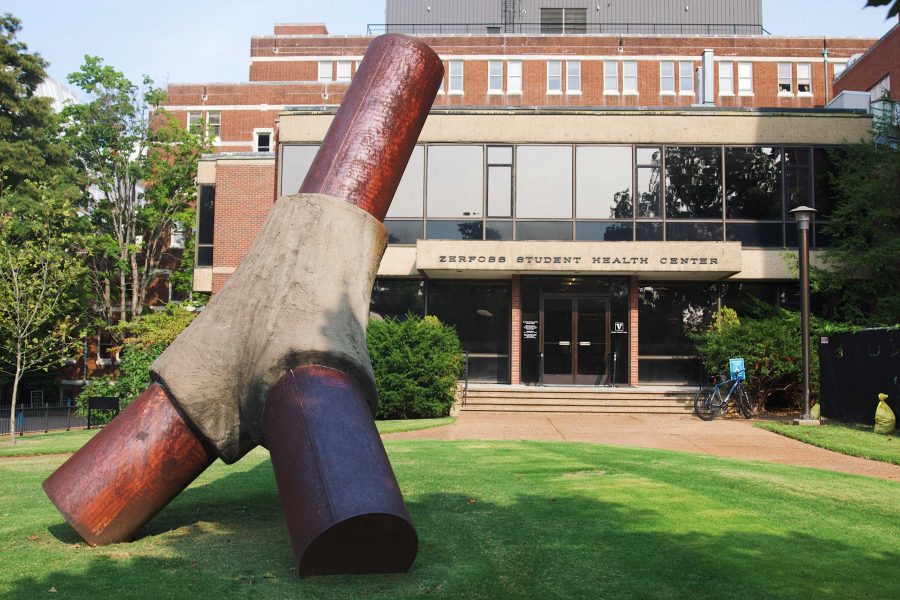Forensic examinations, also known as medical legal examinations (MLEs) and Sexual Assault Forensic Examiner (SAFE) exams, are now available on-site at the Student Health Center as well as at the Medical Center. The Student Health Center’s SAFE program went live on June 1, 2018, making this the first academic year in which the center is equipped to perform SAFE exams in-house.
While forensic examinations have always been available at VUMC, they have previously been performed by outside nurses as part of a contract with Nashville General Hospital in which practitioners were sent to VUMC upon request, according to John Howser, a spokesperson for VUMC. At times, it took upwards of an hour for the nurses, who are specially trained and certified to complete these exams, to arrive, prolonging the amount of time a patient was prohibited from changing clothes, drinking water and using the bathroom.
“I think it’s great that they’ll have SAFE exams in-house,” said a junior who is a survivor of a sexual assault that occurred last fall. “When I went to the ER, I had to wait almost an hour for the SAFE nurses to come from Meharry medical, which was ridiculous.”
Equipping the Student Health Center to offer SAFE exams has been a two-year process involving significant training as well as cooperation and coordination with multiple groups including VUMC Emergency Department, VUMC administrative and medical leadership, VUMC and VU legal counsel, Student Health, VUPD, Metro PD, TN and Metro Crime labs, VU Project Safe Center and the Davidson County District Attorney’s Office, Hanson said.
“This has been in the works for several years–to enhance services for students,” said Dr. Louise Hanson, the Director of Student Health. “A significant goal is to reduce the potential barriers to students who choose to get a forensic exam–if students can get forensic exams in a clinic that is convenient, familiar and comfortable, this is preferred to transporting to an unfamiliar setting or facility.”
The SAFE examinations are available at the Student Health Center, during its typical hours of 8 a.m. to 4:30 p.m. Monday through Friday and Tuesday extended hours from 4:30 p.m. to 6:45 p.m., in a quiet and private space that is separated from the rest of the clinic which is reserved for gynecological procedures such as IUD insertions, Dr. Hanson said. The exams are performed by student health staff members who underwent specialized training to certify them as sexual assault forensic examiners, Hanson said. No additional staff were hired to complete the exams. If a student needs a forensic examination outside of regular hours, they can go to the Emergency Department at VUMC to coordinate care.
Ideally, victims of sexual assault will get a SAFE exam within 24-48 hours of the assault, but high quality evidence can still be obtained within 96 hours, Hanson said. Therefore, depending on the timing of the assault, students could wait a few hours for Student Health to open and pursue the exam there. However, Hanson recommends that victims go to the Emergency Department if they want to pursue the exam immediately after hours or if the 96-hour mark is drawing near. Additionally, Hanson said, students should go straight to the Emergency Department and not wait for Student Health if they have immediate health needs, such as physical injuries, from an assault.
When a student does go to the Emergency Department, the healthcare providers will assure that the student receives any necessary medical care as well as determine whether one of the VUMC SAFE personnel or the on-call Student Health forensic examiner will carry out the SAFE exam. If the student decides on the Student Health examiner, that practitioner will be called in to complete the exam, either at the Emergency Department or back at the Student Health Center based on the victim’s preference. Victim Resource Specialists from Project Safe are also available 24 hours a day to accompany students at either the Medical Center or Student Health.
“This is a very student-centric process with lots of possible options for care–the student will make the decision about what is most comfortable for them,” Hanson said.
Furthermore, Project Safe can call Student Health to schedule a forensic exam on the student’s behalf if they prefer. Because the exam cannot be done by all Student Health providers, it cannot be offered on a walk-in basis, but same-day service is guaranteed, Hanson said.
Vanderbilt is leading the charge on offering SAFE exams directly in the Student Health Center, as Hanson is only aware of a few other campuses which currently offer exams at their health centers. Among peer institutions offering SAFE exams on campus are the University of Michigan, Minnesota State University, Eastern Tennessee State University, UT Dallas and the University of Oregon.
While forensic examinations aid in the preservation of relevant evidence for students who wish to open an investigation, Dr. Hanson encourages students to consult with the teams at Student Health and Project Safe to make a decision that they are comfortable with, she said.
Further, the policy notes that under Tennessee law, medical personnel are required to report to law enforcement if they treat a patient whose injuries were caused by a violent crime such as sexual assault. However, consenting to a forensic examination doesn’t mean that the student must open an investigation with the Title IX Office or take any other action against the respondent.
Cara Tuttle Bell, the Director of Project Safe, noted that amid all of the changes being made to policies, programming and services to start the year, the availability of forensic exams at the Student Health Center is the one that excites her most.
“This is another example of the continuing widespread advocacy and support that exists on this campus and beyond for those impacted by sexual violence,” she said.

